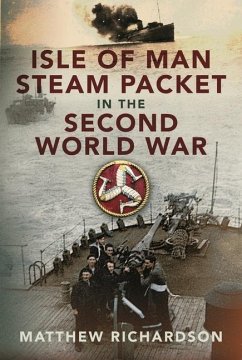
Major Blunders of the Second World War
New Insights Into Mistakes and Their Consequences
Versandkostenfrei!
Versandfertig in über 4 Wochen
29,99 €
inkl. MwSt.

PAYBACK Punkte
15 °P sammeln!
Examines notable blunders and errors of judgment during the Second World War, revealing their often embarrassing and contentious repercussions. A mistake is an error of judgement, a blunder is a mistake caused by carelessness or ignorance, implying incompetence. Blunders are not always the result of incompetence; a chess player may give a critical piece away being distracted by noise, but in war it results in death with serious repercussions. This book explores such errors during the Second World War, some hardly known, a few contentious, many embarrassing. An American destroyer which fired a ...
Examines notable blunders and errors of judgment during the Second World War, revealing their often embarrassing and contentious repercussions. A mistake is an error of judgement, a blunder is a mistake caused by carelessness or ignorance, implying incompetence. Blunders are not always the result of incompetence; a chess player may give a critical piece away being distracted by noise, but in war it results in death with serious repercussions. This book explores such errors during the Second World War, some hardly known, a few contentious, many embarrassing. An American destroyer which fired a live torpedo at a battleship carrying Roosevelt, an American officer who unintentionally passed British information to Rommel, and a German plane crash-landing in neutral territory with plans for invasion are some little-known incidents. Overconfidence resulted in a Luftwaffe raid hitting exposed American gas shells killing Italian civilians, British and American military. Self-assurance led to an American general who lost men and tanks failing to rescue his son-in-law from a PoW camp. Inadequate planning brought disaster in the raid on Dieppe. Poor tactics deployed in the bombing of Monte Cassino was bad propaganda for the Allies but assisted the German defence. There are some issues which remain disputed, as with the British sinking the French Fleet, but whether it was a blunder remains questionable. There is the issue of the abdicated King Edward often accused of being a traitor, which may not have stood a court case but possibly a Judas caused by immature naivety. Finally, Dönitz was condemned at Nuremberg, but his U-boat warfare was no different from the Allies and at times almost chivalrous.












